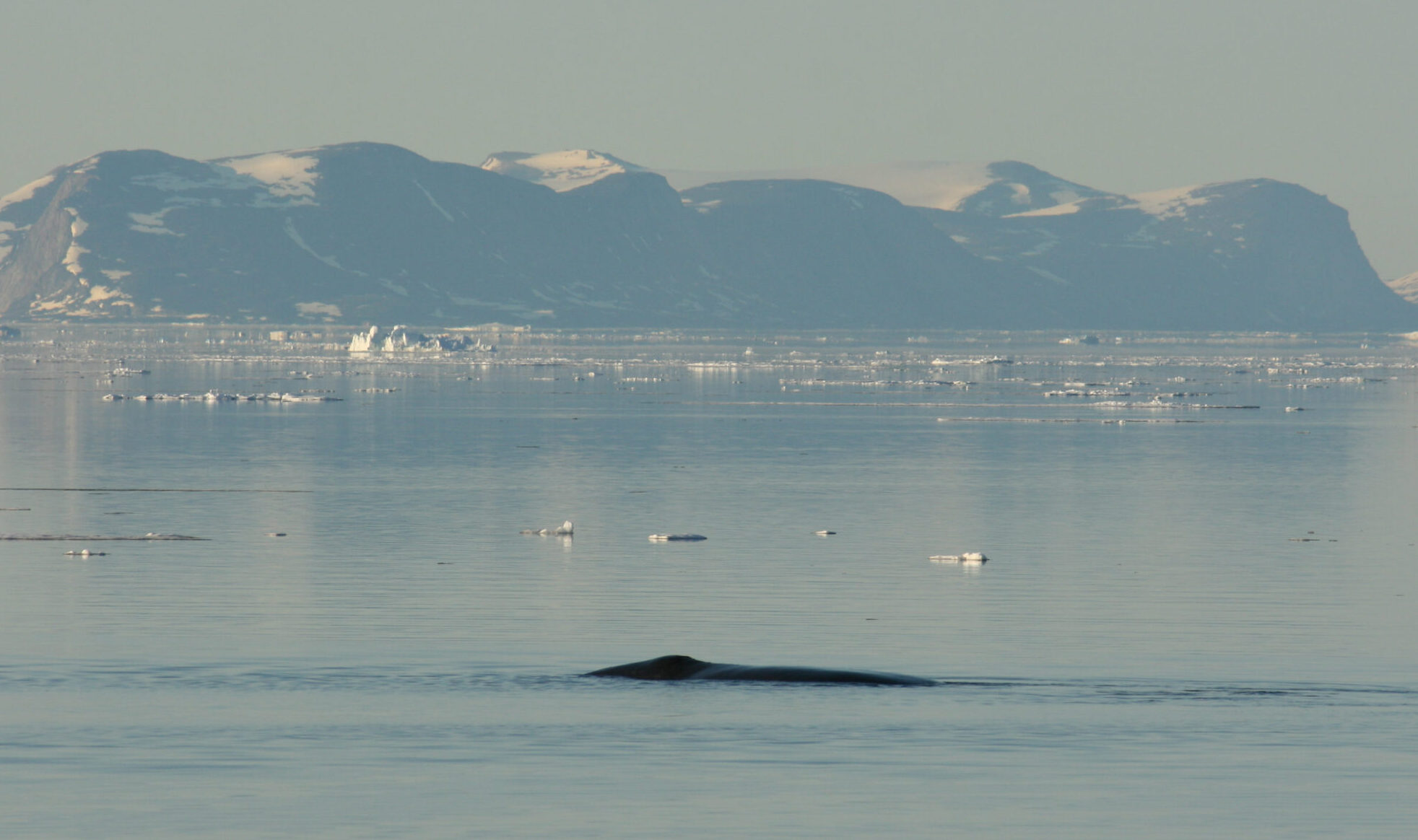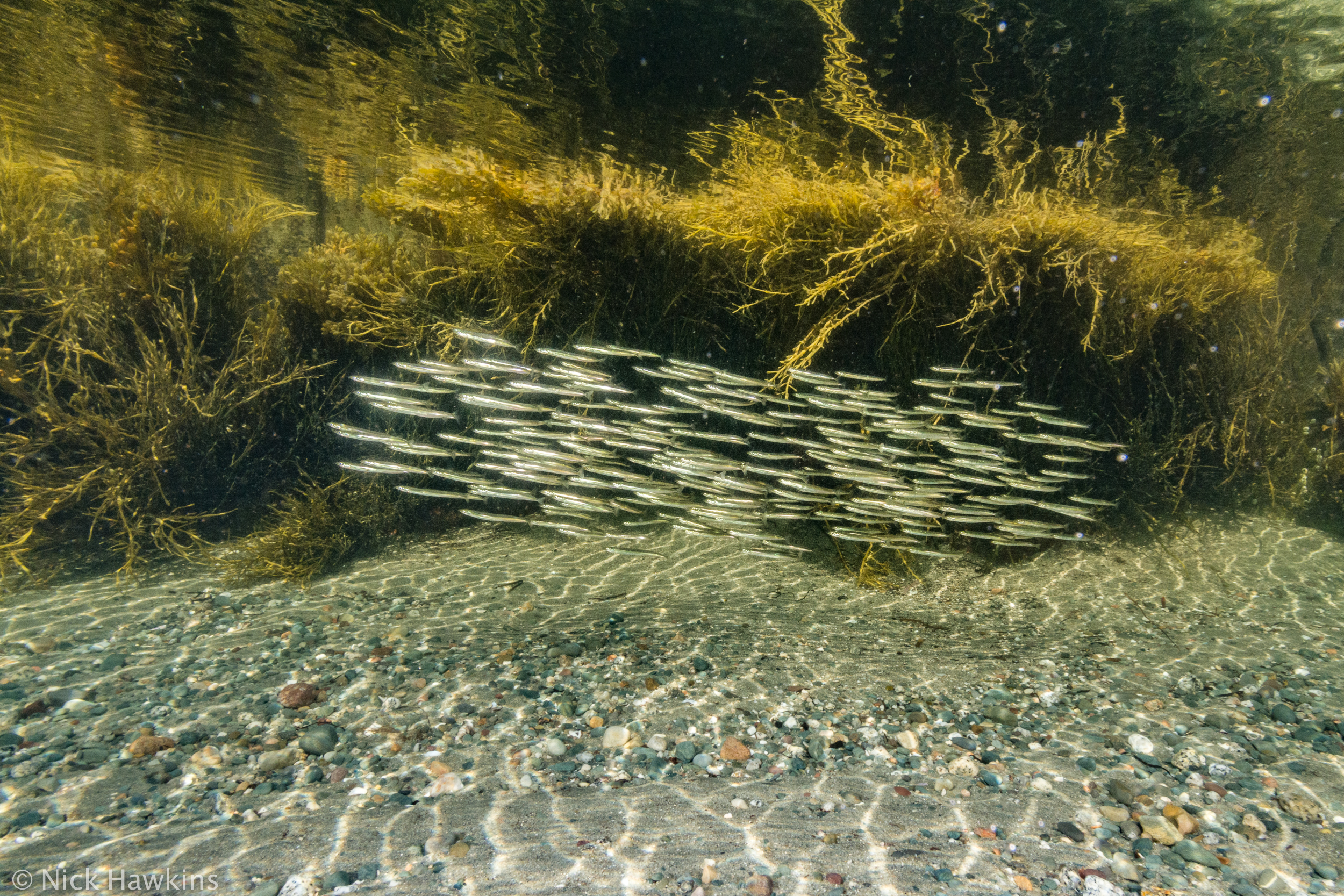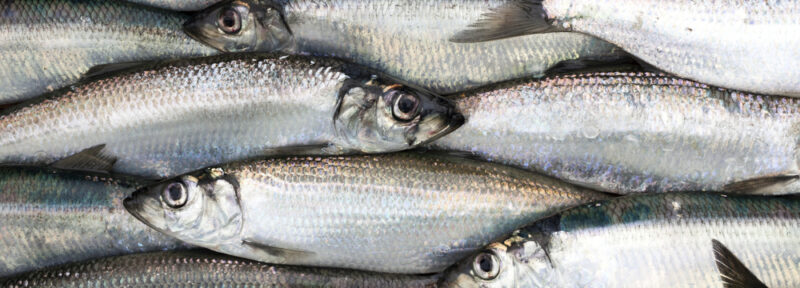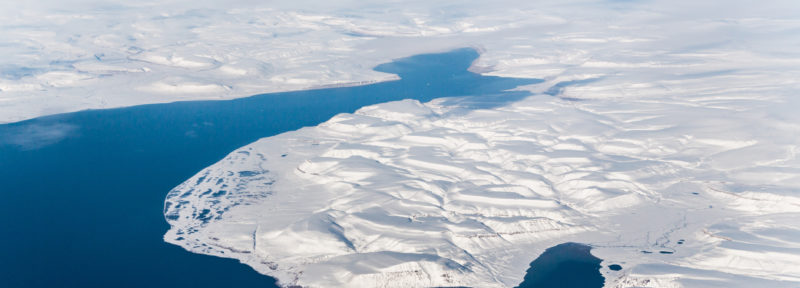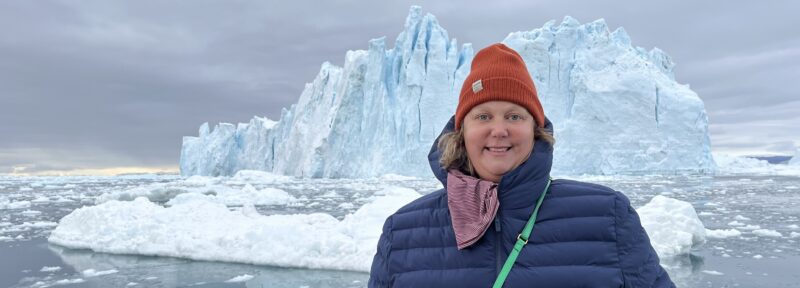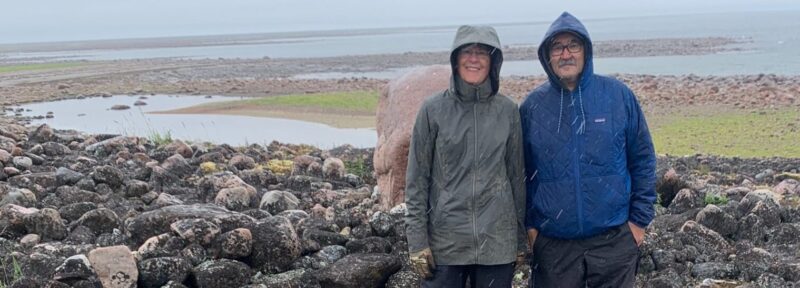A Healthier Future Includes Ocean Recovery
A whale surfaces in Tallurutiup Imanga (Lancaster Sound).
Credit: Oceans North
As countries around the globe struggle to contain the pandemic, World Ocean Week is a time to reflect on how best to include stewardship of our ocean as an essential part of the recovery process. Before COVID-19 upended life as we know it, the planet was facing unprecedented crises related to climate change and the loss of biodiversity. As the pandemic-related restrictions begin to ease, our plans for a healthier future must include the protection of our ocean.
Canada has made progress over the last four years in strengthening our oversight of the ocean and fisheries, both in terms of policy and laws. In 2019, a commitment was made to develop a Blue Economy Strategy, a plan to harness the potential of oceans, seas, lakes and rivers. Coastal communities are grappling with changes to international seafood markets and loss of tourism revenue. Many of Canada’s once abundant fisheries and marine wildlife populations remain at all-time lows. Some have faced less serious declines, benefiting from population reductions higher up the food chain. As Canada plans for social and economic recovery, efforts to restore our ocean must be maintained.
If we focus on clear outcomes, Canada can collectively ensure that our future Blue Economy is fully grounded in sustainability, in restoration and protection of the ocean, and that coastal and Indigenous communities are at the heart of stewardship and monitoring. Human well-being and justice must be incorporated into this process.
Doing so will require that Canada’s climate change policies and programs include coastal and marine ecosystems as natural solutions to reducing carbon in our atmosphere. Jobs in coastal communities must also be tied to ocean recovery – from monitoring, guardian programs and ecosystem restoration to sustainable fisheries and innovations in ocean technology. We should continue to protect marine habitat, including designating Indigenous Protected Areas, because reducing human threats is one of the best ways to allow the ocean to restore itself.
American sandlance school in the shallow waters off Nova Scotia's Eastern Shore.
Credit: Nick Hawkins
Canada’s new Fisheries Act commits to rebuilding fish populations for the first time, and strong measures must be taken to reverse fisheries declines. Prohibiting new forage fisheries – for species that form the bottom of the food chain – would be a bold next step to protect the marine ecosystem. Ocean plastics have become a major concern. Canada must advance efforts to cut in half the amount of plastics entering the ocean, including providing incentives for lower-impact fishing gear and placing restrictions on single-use plastics. Finally, Canada can be a global leader on sustainable shipping practices, by reducing greenhouse gases from vessel emissions.
Each of the recommendations above is related to commitments that Canada has already made. Progress on all of them will result in social and environmental benefits that together are a step towards human health as well as restoring our natural world.
During the pandemic, Oceans North has worked to support communities where access to the outdoors and to food from the ocean has been a lifeline for many. Healthy fisheries are a foundation of healthy coastal communities. As the country emerges from this crisis, decision makers must ensure that the ocean provides sustenance into the future.
Susanna Fuller is vice-president for operations and projects at Oceans North.
Restoring Our Ocean:
Supporting Conservation-based Economic Recovery [PDF]

